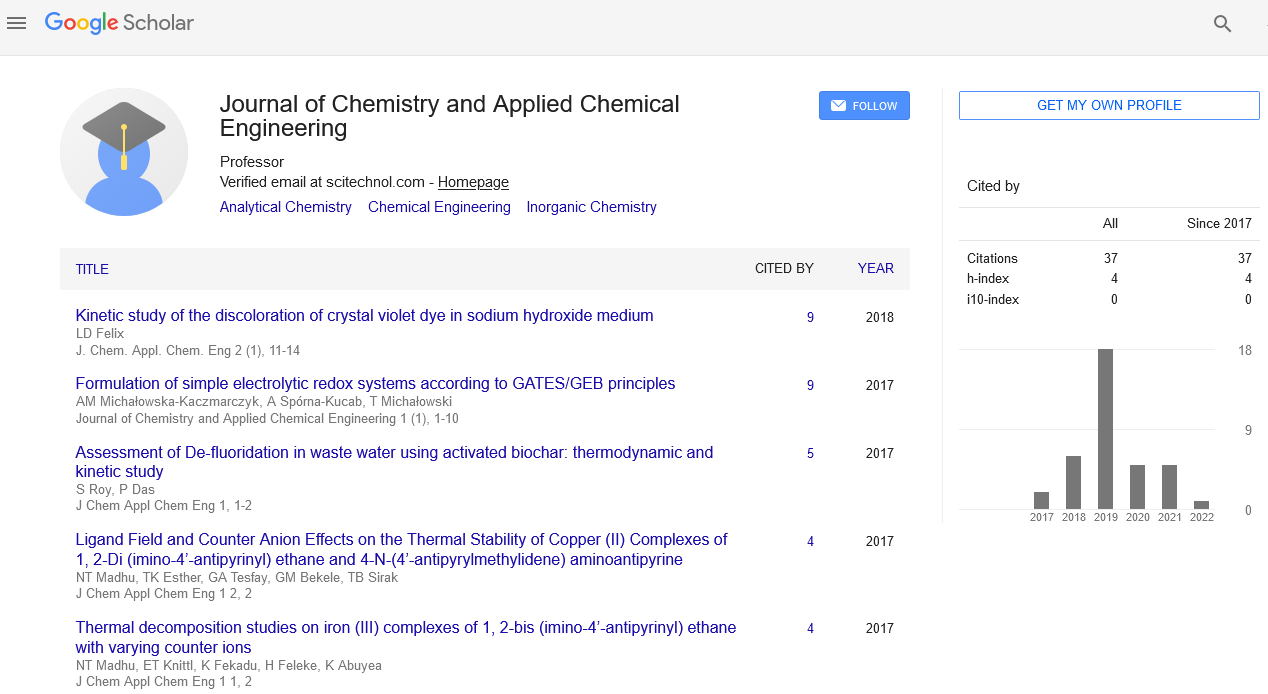Effects of electrolyte on the polymerization of aniline onto mild steel
Amar Prasad Yadav, Shova Neupane and Dipak Kumar Gupta
Tribhuvan University, Nepal
University of Hasselt, Belgium
: J Chem Appl Chem Eng
Abstract
Polyaniline, a conducting polymer, is being studied as corrosion protection coating for active metals due to ease with which it can be electro-polymerized and its redox state can be controlled. Electro-polymerization of aniline onto oxidizable surface is difficult as oxidation potential of mild steel is negative than the oxidation of aniline. So, it is necessary to find the suitable electrolyte that provides less dissolution of metal and more electro-polymerization. Till now different approaches have been adopted to coat adherent Polyaniline (PANi) onto metal surface. This study reports on the formation of highly adherent PANi coating onto mild steel surface by using sodium potassium tartrate and benzoic acid in alcohol as electrolytes. Conducting passive layer onto mild steel is formed when sodium potassium tartrate and benzoic acid are used as electrolytes separately and electropolymerization of aniline is achieved at low potential. Solvent plays important role in the formation of different form of PANi. The concentration of aniline and electrolyte affect the features of polymerization. The effect of parameters like concentration of aniline, potential range, deposition time, and concentration of benzoic acid in alcohol will be discussed. In addition, the effect of rare earth metal ions on the polymerization will be discussed.
Biography
Amar Prasad Yadav has completed his PhD from Tokyo Institute if Technology and Postdoctoral Studies from Max-Plank Institute of Iron Research, Dusseldorf, Germany. He is the President of Nepal Chemical Society and Professor of Central Department of Chemistry, Tribhuvan University.
E-mail: amar2y@yahoo.com
 Spanish
Spanish  Chinese
Chinese  Russian
Russian  German
German  French
French  Japanese
Japanese  Portuguese
Portuguese  Hindi
Hindi 